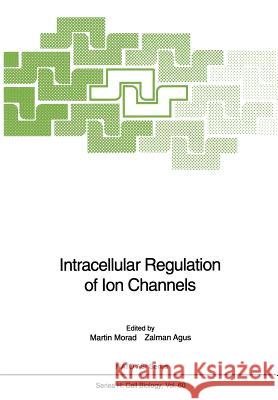Intracellular Regulation of Ion Channels » książka
Intracellular Regulation of Ion Channels
ISBN-13: 9783642846304 / Angielski / Miękka / 2011 / 251 str.
Understanding the molecular processes by which ionic channels are regulated is central to the understanding of cellular function. Great advances in understanding these regulatory mechanisms have been recently achieved by the combination of several powerful techniques. Development of the patch clamp technique, ability to access the intracellular channels sites, and genetic manipulation of channel structure have allowed studies of channel function in native membranes. Cloning, sequencing and determining the channel structure and its subunits allows further insight into the regulatory mechanisms of channel function. In planning this symposium, we organized the scientific discussions around specific molecular topics independent of the tissue and species of origin. Clearly, the subject of ion channel regulation is multi-faceted, with a large number of very talented scientists working in the field. The NATO Symposium represented an attempt to bring together these individuals and synthesize and evaluate new ideas and experimental findings. A great deal of novel data was presented, and scientific insight into the molecular processes which regulate ionic channels was furthered. This book gives a synopsis of the scientific presentations and is organized into 3 sections. The first section deals with the diversity of K + channels and their regulation, including structure-function and mechanistic studies. Presentations dealt with the characterization and modulation of a variety ofK+ channels in cardiac and neuronal cells, including ATP dependent K+ channels, Na + -activated K+ channels, delayed rectifier K+ channels and the diversity of their regulation by G-proteins."











